Coastal Careers
Would you like a career working the coast?
The coast is a dynamic and exciting place that evokes strong emotions in everyone who lives, works, and plays there. It’s a complex environment where decisions and actions can have long-lasting impacts. Therefore, it’s important for those who manage the coast to work together to ensure that the legacy we leave for future generations is a positive one.
There are many opportunities, working in many different sectors along the coast – jobs that need a range of skills and provide a variety of prospects. Whether you’re interested in engineering, biology, conservation or fisheries, there’s a coastal career waiting for you!
Here are just a few examples of careers that involve working on the coast.
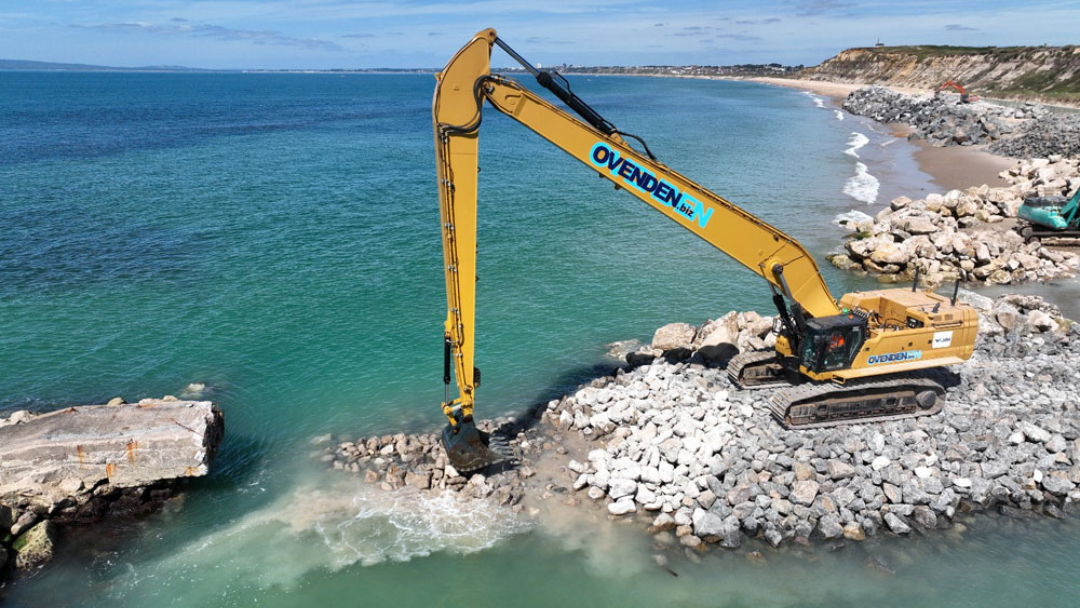
Coastal Engineer
Coastal Engineering is the branch of civil engineering specialising in the planning, design, construction and maintenance of project works in coastal areas, addressing the challenges and dynamics associated with the interface between land and water. They work to protect and enhance coastal zones by developing solutions for coastal erosion control, shoreline protection, and sustainable coastal development.
Find out how to become a Civil Engineer on the Institution of Civil Engineers website
Photo: Hengistbury Head Long Groyne works (credit South West Flood & Coastal)
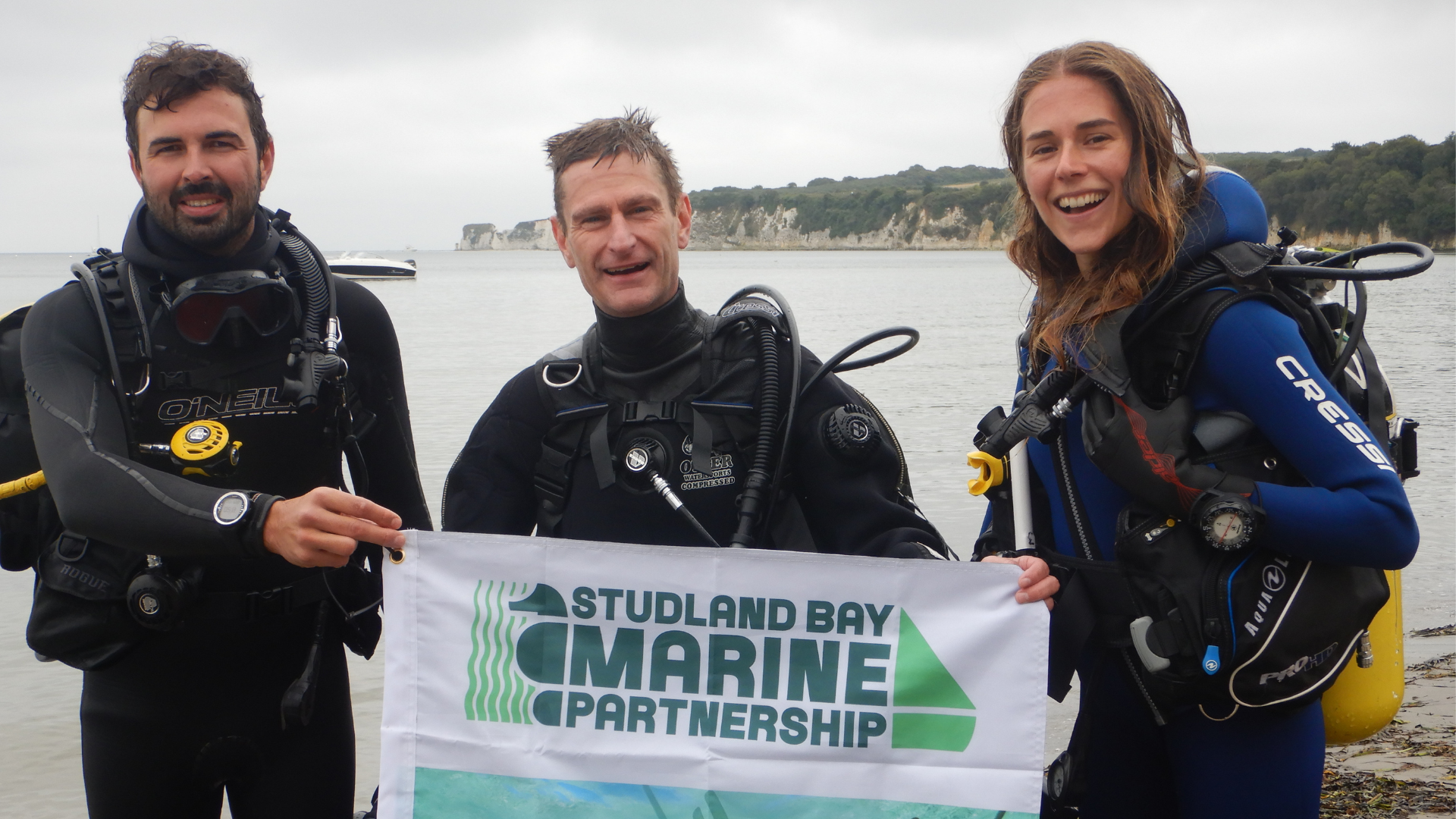
Marine Biologist
Marine biologists study marine life, from the smallest, single-celled organisms to the largest mammal on the planet, the blue whale. They explore diverse ecosystems, from coastal seagrass beds to coral reefs. Promoting marine conservation and encouraging ocean friendly behaviour changes are important roles for many marine biologists.
Find out how to become a marine biologist on the National Marine Aquarium website.
Photo: University of Southampton Research Team Divers (credit Dr Ken Collins)
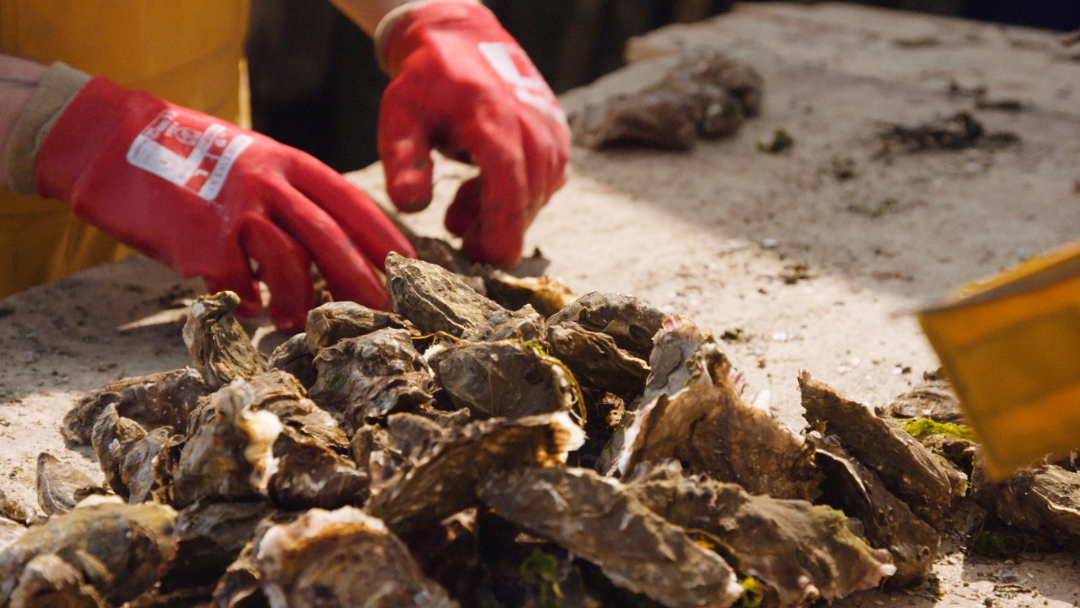
Fisheries and Aquaculture
Fishing is a challenging but rewarding career. In the UK there are over 400 ports and harbours. Jobs in the fishing and aquaculture industry include traditional fishing, commercial fishing and fish farming, the production of fishing equipment and products, fishing gear sales, and recreational fishing services. You could also work as a Fisheries Conservation Officer, ensuring that the fishing industry abide by regulations.
Find out more on the Global Seafood Alliance website
Photo: Oyster farming (credit Butterfly Effect Films)
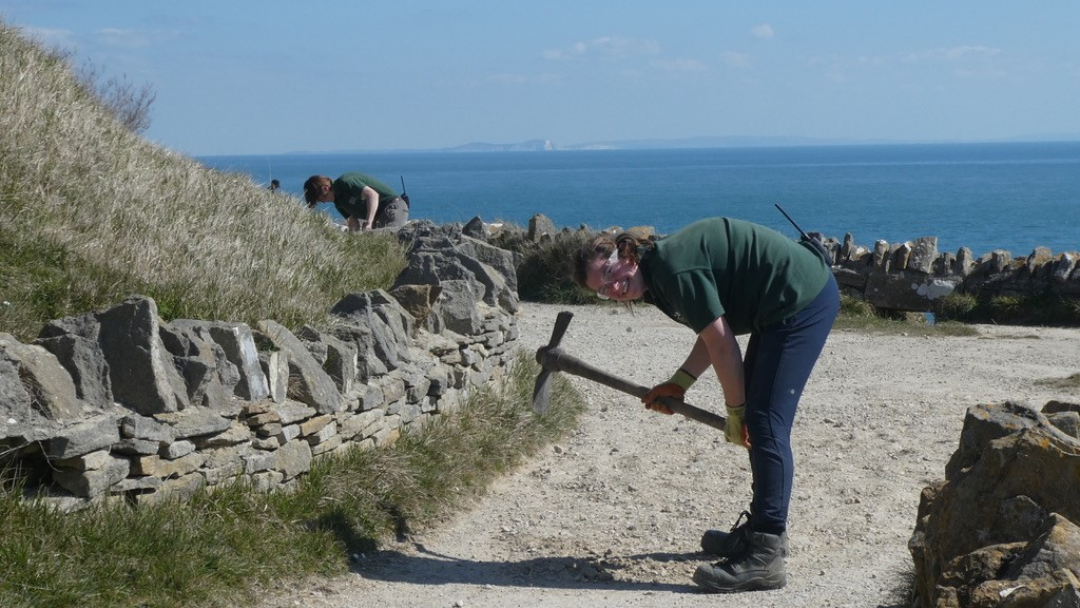
Coastal Ranger
Coastal Rangers maintain infrastructure and access to Dorset’s section of the South West Coast Path National Trail. Their work also includes managing the rights of way network (mainly footpaths and bridleways), other long distance trails, nature reserves and public open spaces, offering a diverse range of hands-on physical work.
There are opportunities to volunteer with the Dorset Council Greenspace Service. In return for this help, training is provided, and volunteers are part of a team of like-minded people who share a passion for the coast and countryside, whilst keeping active and building up a CV for a future career in countryside management.
Find out more at Dorset Council Volunteer Rangers
Photo: Coastal ranger working on the coast path (credit. Dorset Council)
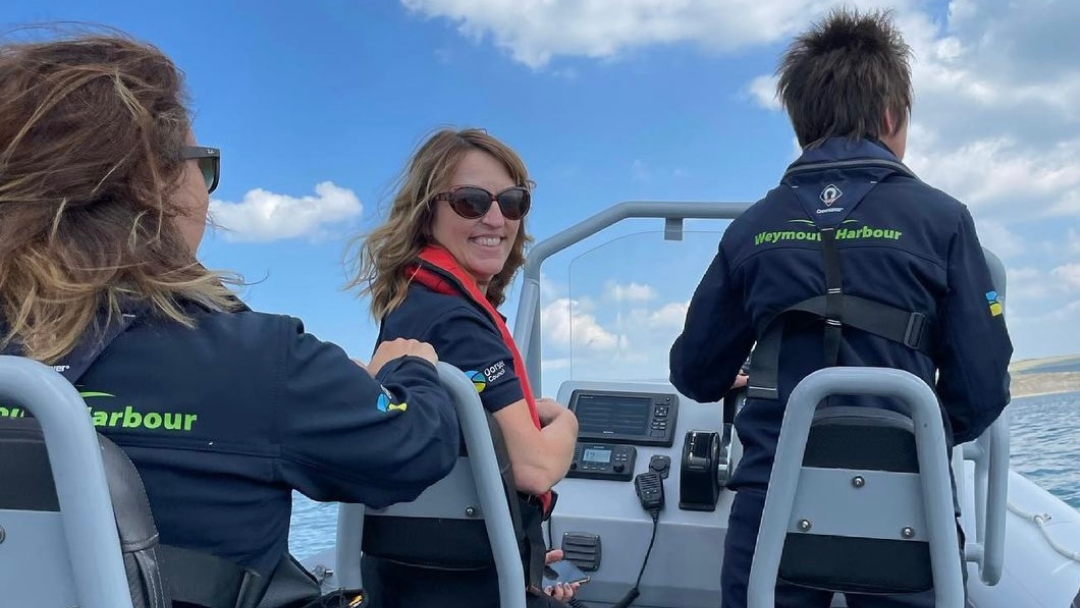
Harbour Officer
Harbour Assistants and Berthing Officers for Dorset Harbours(West Bay, Lyme Regis, and Weymouth), play a vital role in ensuring smooth day-to-day operations of these bustling maritime hubs. Under the guidance of the Harbour Master, duties range from assisting vessels during arrival and departure to managing vessel traffic and collecting harbour fees.
These hands-on roles are perfect for those passionate about maritime environments and offer the chance to contribute directly to the safety and efficiency of Dorset’s iconic harbours. Whether it’s during regular hours or responding to emergencies, the work helps to keep the Dorset Harbours safe and welcoming places for all who visit.
Find out more at Weymouth Harbour
Photo: Weymouth Harbour Officers at work (credit. Dorset Harbours, Dorset Council)

Community Engagement
Community engagement involves connecting with communities to build on the resources, knowledge, views and expertise from a community. Engagement with coastal communities is an integral part of a coastal project, as it allows the project team to learn from the experiences of those who live, work and enjoy the coastal area.
Engagement teams must remain independent and neutral to facilitate discussion between community members and organisations. This helps to identify common goals and establish the next steps for the coastal project.
See examples of working with coastal communities on the Dorset Coast Have Your Say website
Photo: Dorset Coast Forum engaging with the community on Swanage Seafront (credit. Dorset Coast Forum)

Further Education
Further Education offers courses in many fields, giving you more career choices. For example, colleges might offer courses in a variety of areas such as animal science and management, marine ecology and conservation, agriculture, fish farming and boat building.
Further Education colleges offer practical learning opportunities for students to gain employability skills. They also have exams and written assignments, but some courses include practical assessments where instructors evaluate you in a work environment. Depending on the course you are interesting, courses usually include:
- learning in a classroom
- learning and training in real work environments
- attending specialist skills or employer workshops
- gaining industry based vocational certificates
Find out more about places where you can access Further Education courses here Sixth forms and colleges in Dorset

Apprenticeships
Becoming an apprentice is a great way to start a new career or get ahead in your current one. Apprenticeships combine real work with training and study for a specific role. You’ll learn new skills, gain experience and earn a salary too. Being an apprentice can be an exciting and rewarding career path.
As an apprentice you’ll:
- be an employee earning a wage
- work alongside experienced staff
- gain job-specific skills
- get time for training and study related to your role
Find out more on the Dorset Council website
